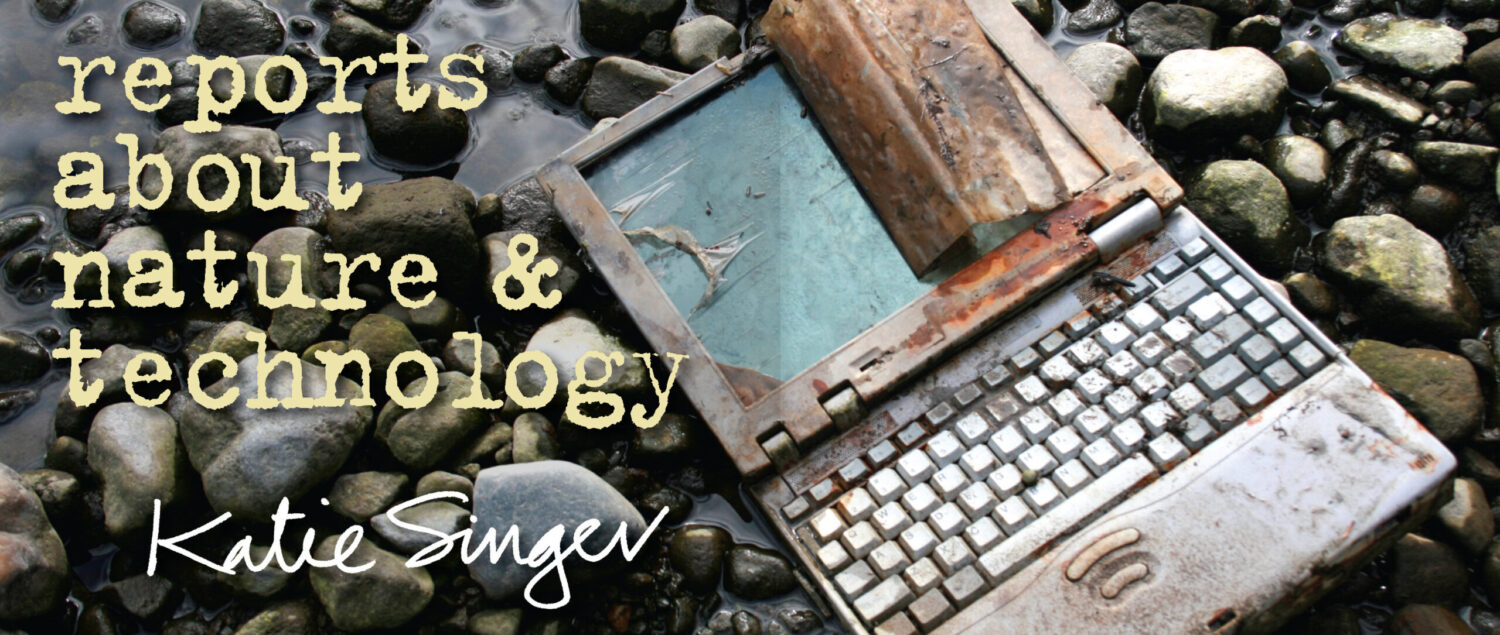Despite popular assumptions, the Internet turns out to be a voracious consumer of energy and minerals–and supplying them has vexing implications for climate change and biodiversity loss. While the online world grows by leaps and bounds, we come ever-closer to overwhelming the planet’s ability to support us. Katie Singer’s book is a riveting examination of technologies that we all rely on and take for granted. The research is impeccable, the implications sobering.
Richard Heinberg
Senior Fellow, Post Carbon Institute
Our Web of Inconvenient Truths is a magnificent, comprehensive, long overdue examination of the negative, irreversible consequences to society from our mad race for electronics. Pressured by billionaire enterprises, our entire globe has plunged into high-speed Internet without vetting its long-term consequences on nature or humanity. Katie Singer offers a keen, groundbreaking analysis of what we have actually done to ourselves and the living world. Her investigation is brilliant. Before it’s too late, we must heed her recommendations.
Jerry Mander
Founder, International Forum on Globalization
Author, Four Arguments for the Elimination of Television
This is an original, unexpected, shocking and much needed wake-up call to the unsustainable effects of an ever-expanding Internet and digital world. We have been oblivious to its energy consumption, greenhouse gas emissions and waste, and even the ways it harms us humans socially, psychologically and biologically. Katie Singer’s research clearly demonstrates that while computers have often improved our lives, these advances may have us using more natural resources than our planet can provide and wasting more than it can absorb.
Our Web of Inconvenient Truths is a timely and vital warning about the dangers of unrestricted Internet growth. But the author is clear: we all contribute to the problems, and we all hold responsibility for the solutions. If we want to build a sustainable future, we have to act now!
José Ramón López-Portillo PhD
The United Nations’ Technology Facilitation Mechanism
Member Group of 10
Katie Singer clearly explains that despite the Internet’s benefits, it fosters energy dependence and takes us faster to climate change. May this remarkable book make Internet users more responsible. May it inspire revised policies and governance around the world.
Ajay K. Jha, New Delhi attorney for sustainability and human rights
Director, pairvi.org and cecoedecon.org
Former director, Beyond Copenhagen
Katie Singer has sounded the alarm: The Internet consumes unsustainable amounts of electricity and conflict minerals. It generates greenhouse gases and waste. With the semiconductor industry reporting that we may not have enough electricity to power computers by 2040, industry, legislators and consumers must understand the current disturbing trends and drastically reduce their Internet use ASAP. Please: read the well-documented evidence in this book–and join me in taking steps to shrink our Internet footprint.
Frank Clegg
former President, Microsoft Canada
founding CEO of Canadians for Safe Technology
Given the current push to foist 5G and the Internet of Things on the public without meaningful assessments of their impacts on humans or wildlife, Katie Singer’s book is especially timely. She presents an overview of communications systems in their full complexity, along with practical solutions to reduce electrosmog and the Internet’s footprint. Definitely worth a close read.
Albert Manville, PhD, Certified wildlife biologist
Retired agency lead on impacts of communication towers on migratory birds, US Fish & Wildlife Service; Adjunct Professor, teaching conservation biology, climate change and wildlife management, Johns Hopkins University/DC campus
This book is the first deep analysis of the Internet’s reach in our globalized, monetized world. Katie Singer has methodically uncovered inconvenient truths about the web’s consumption of fossil fuels, water and other resources. A must-read for Internet enthusiasts, energy analysts, environmentalists, social scientists, policy makers and citizens worldwide.
Hazel Henderson
author, Mapping the Global Transition to the Solar Age
CEO, Ethical markets Media Certified B Corporation, publishers
Green Transition ScoreboardR
Our Web of Inconvenient Truths is an unsettling and necessary expose about electronic technologies’ staggering impacts. First come detailed examples of the true costs of Internet access. Then, for those who are willing, we get well-thought-out solutions for reducing our footprint. This powerful book provides a clear call to the human spirit to get real and reduce our impacts on natural ecosystems.
Dennis Klocek
author of Climate: Soul of the Earth; www.docweather.com
